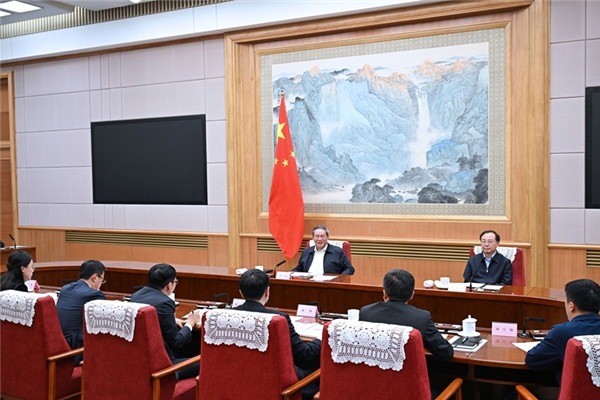Proactive policies to boost fiscal growth


Tax, fee reductions to help in transfer of resources from govt to market entities
China will launch proactive fiscal policies next year to improve the efficiency, quality of government investment and stabilize the economy amid a possible slower fiscal income growth, said Finance Minister Liu Kun.
"The fiscal policy should strengthen countercyclical adjustments and meet the fiscal balance requirements next year," Liu said in a work report, which was issued on the ministry's website on Friday, after the two-day annual meeting in Beijing.
Tax and fee reduction will be the key measures for a proactive fiscal policy, through which more resources can be transferred from the government to market entities, and is another way of increasing fiscal expenditure, said Liu. "We will reduce the taxes and fees that need to be reduced."
Experts said no new tax and fee cuts will be announced in the near term and the government will instead focus on implementing existing policies.
Full-year tax and fee reductions for this year is expected to be more than 2 trillion yuan ($286 billion), and the manufacturing industry, as well as the small and micro enterprises will benefit the most. For instance, about 70 percent of the value-added tax cuts happened in the manufacturing sector, according to finance ministry data.
Fiscal and taxation system reform will continue next year, along with the accelerated tax legislation process and strengthening fiscal expenditure management, the minister said in his speech.
Maintaining a balance between fiscal income and expenditure will be more difficult next year, the minister said, predicting a slower increase in revenue growth for central and local governments. That may limit the space for implementing an expansionary fiscal policy, said experts.
"How much the government can spend is determined by how much the income is", which is a key principle for setting next year's fiscal budget.
Government spending will focus on reducing poverty, environment protection, improving education and supporting small-and medium-sized enterprises, according to the work report.
The government will encourage local governments to expand the scale of financing guarantee business of small and micro enterprises in the real economy to reduce the financing guarantee rate. Local governments will be urged to repay the debt borrowed from private and small companies. A pilot program to deepen financial services reforms for private, small and micro enterprises will be launched, the report said.
In terms of fiscal and tax reforms, the legislation on value-added tax law, consumption tax law and tariff law is in the pipeline, and the finance ministry plans to expand the water resources tax pilot.
At the two-day annual meeting, the Ministry of Finance asked local officials to carry out the debt dissolving plans in a practical and detailed way, accelerate the market-oriented reform of local government financing platforms-most of which are indebted State-owned companies guaranteed by the local governments, and strengthen supervision to curb the growth of implicit debt.
The Finance Minister suggested to "make good use of the local government special bonds" in 2020, a debt instrument that collects funds for infrastructure construction, which usually has relatively lower financing costs compared with corporate bonds. "The scale of projects using special bonds should be expanded, and a mechanism for reserving, assessing and selecting special bond investment projects is needed," said Liu.
The local government special bonds will be an important fiscal tool next year to expand investment and stabilize economic growth, Li Yang, director of the National Institution for Finance and Development under the Chinese Academy of Social Sciences, said at the 2019 China Bond Market Forum on Friday.
This year, some local governments have already taken measures to reduce the implicit debt, but further efforts should be taken to prevent debt risks, which calls for tighter supervision of local governments' budget performance, he said.
Another task is to step up reforms for managing State-owned funds and enterprises, to push for the establishment of a company, which is in charge of investing and operating the State-owned capital, as delegated by the State Council. The introduction of regular rules for capital owned by State-owned financial institutions will help accelerate, streamline and centralize the fund management, said Liu.




































